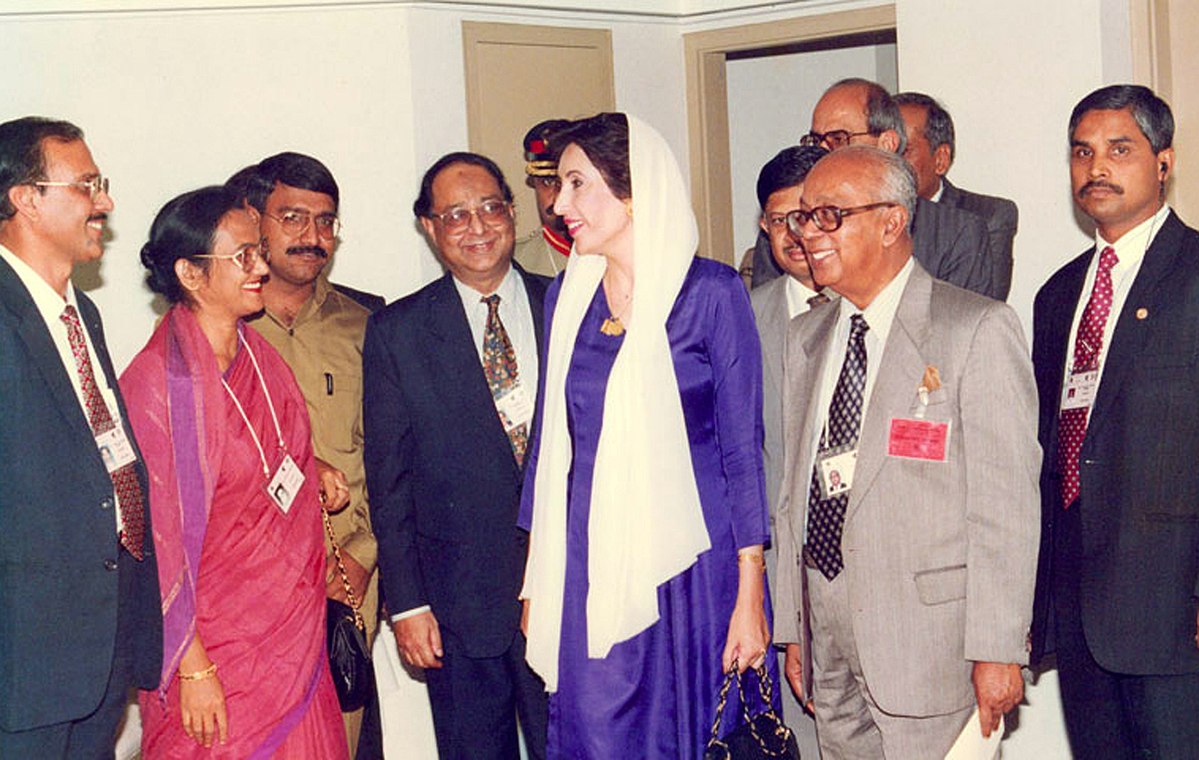
Second Term of Benazir Bhutto
PakistanIn the 1993 general elections, Benazir Bhutto's party secured a plurality, leading to her forming a government and selecting a president. She appointed all four chiefs of staff – Mansurul Haq (Navy), Abbas Khattak (Air Force), Abdul Waheed (Army), and Farooq Feroze Khan (Joint Chiefs). Bhutto's firm approach to political stability and her assertive rhetoric earned her the nickname "Iron Lady" from opponents. She supported social democracy and national pride, continuing economic nationalization and centralization under the Eighth Five-Year Plan to combat stagflation. Her foreign policy sought to balance relations with Iran, the United States, the European Union, and socialist states.
During Bhutto's tenure, Pakistan's intelligence agency, the Inter-Services Intelligence (ISI), was actively involved in supporting Muslim movements globally. This included defying the UN arms embargo to aid Bosnian Muslims,[22] involvement in Xinjiang, the Philippines, and Central Asia,[23] and recognizing the Taliban government in Afghanistan. Bhutto also maintained pressure on India regarding its nuclear program and advanced Pakistan's own nuclear and missile capabilities, including securing Air-independent propulsion technology from France.
Culturally, Bhutto's policies spurred growth in the rock and pop music industries and revitalized the film industry with new talent. She banned Indian media in Pakistan while promoting local television, dramas, films, and music. Both Bhutto and Sharif provided substantial federal support for science education and research due to public concerns about the education system's weaknesses.
However, Bhutto's popularity declined following the controversial death of her brother Murtaza Bhutto, with suspicions of her involvement, though unproven. In 1996, just seven weeks after Murtaza's death, Bhutto's government was dismissed by the president she had appointed, partly due to charges related to Murtaza Bhutto's death.
